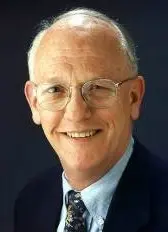The National Heart, Lung and Blood Institute has awarded a $4.2 million grant to engineering, medical and communication researchers at the University of Wisconsin-Madison to help adults over the age of 65 manage multiple chronic health conditions.
Among Medicare beneficiaries, 65 percent have at least three of these conditions and 23 percent have five or more; this subset of patients accounts for a stunning 90 percent of Medicare spending.

In partnership with patients and primary care providers, the UW-Madison researchers will develop an electronic health system enabling adults to self-manage their symptoms. The goal is to improve their quality of life, reduce physician burden, and save money, says principal investigator David Gustafson, a professor emeritus of industrial and systems engineering and director of UW-Madison’s Center for Health Enhancement Systems Studies.
“We will develop a new e-health intervention called Chronic Condition Health Enhancement Support System, or C-CHESS,” Gustafson says. “It builds upon the success of our previous CHESS applications for conditions like cancer, asthma and alcoholism, which has been proven in 15 randomized clinical trials. Using the same gold standard, we will evaluate the benefit of adding C-CHESS to ‘treatment as usual’ for multiple chronic conditions.”
In collaboration with Randall Brown, an associate professor of family medicine and community health at UW-Madison, Gustafson will recruit 330 older adults diagnosed with at least three of the following conditions: hypertension, hyperlipidemia, diabetes and osteoarthritis.
The researchers will monitor the adults for 18 months, directing half of them to use C-CHESS and the other half to review websites related to their conditions, in addition to receiving their usual medical care. C-CHESS aims to boost users’ intrinsic motivation and coping competence through web-based support and access to social networks of patients with similar health conditions.
The new project continues a previous collaboration between Gustafson and Jane Mahoney, a professor of geriatrics at UW-Madison, on the Elder Tree system, which helps older adults decrease the risk of falls and reduce loneliness and isolation. Under the name “Elder Tree Wisconsin,” the system is freely available in 53 of Wisconsin’s 72 counties.
Unexpectedly, Elder Tree users also reported a dramatic reduction in the number of medical symptoms and physician visits, motivating the research team to implement a direct link to healthcare providers in C-CHESS. “When a user’s self-reported data indicate a worrisome change in their health status, the online system informs the clinical team and provides an up-to-date summary of the patient’s symptoms over time,” Gustafson explains.
By connecting older adults with their primary care providers, Mahoney says, C-CHESS will facilitate shared goal setting, health tracking and symptom communication, with the ultimate goal of improving health.
The grant also continues a collaboration with Marie-Louise Mares, director of the UW-Madison Center for Communication Research and professor of communication arts, who brings a wealth of experience in designing technology for both children and older adults to the project.
The A-CHESS support system for alcohol use disorder is being used by more than 6,000 patients in the United States, New Zealand and Australia, with that number expected to increase to 10,000 by the end of 2017, Gustafson says. It is one of 11 finalists for the Harvard Kennedy School’s 2016 “Innovations in American Government” award.
The C-CHESS project hopes to achieve similar success. “To control healthcare costs, we expect to see a continued decrease in inpatient and increase in outpatient service use, which means we have to find a way to support patients during the high-risk times right before and after they receive medical care,” Gustafson says. “I think that’s where our technology can make a significant difference.”